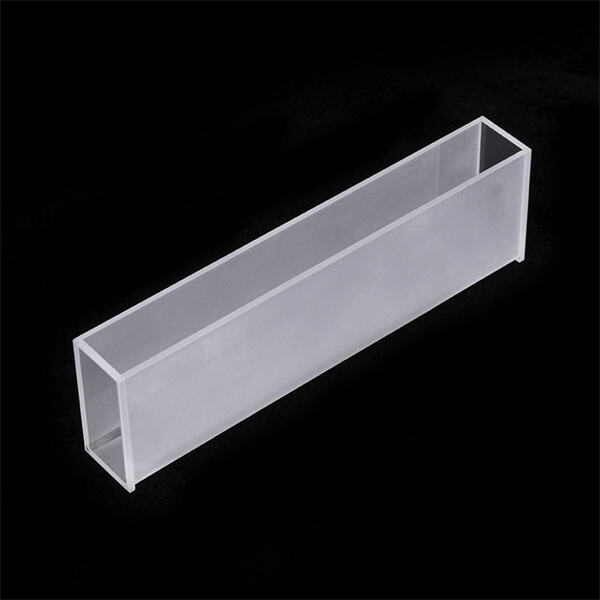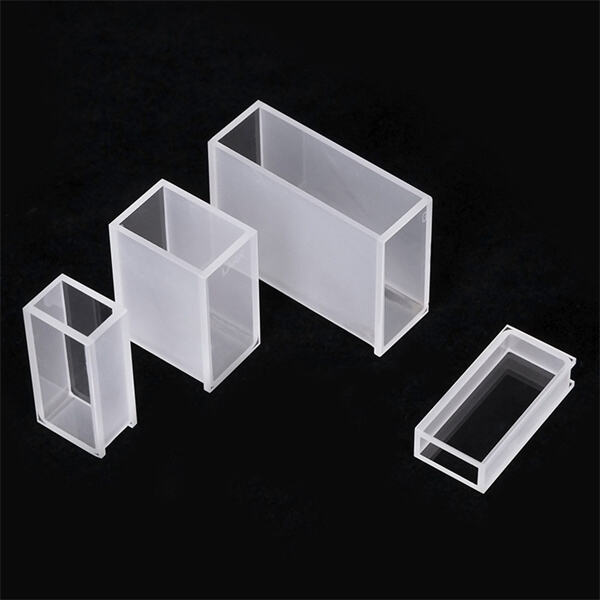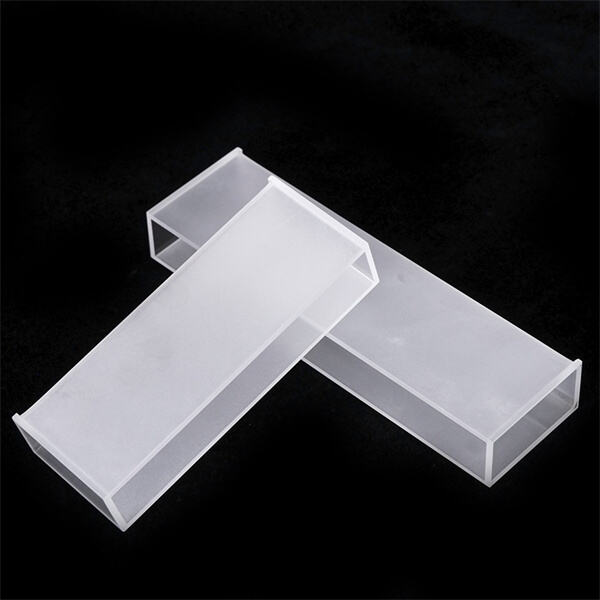They are little glass, specialized containers called spectrophotometer cells. These are used to contain samples for analysis when passed through a device called a spectrophotometer. This is a machine that measures how much light can be absorbed or transmitted through a sample. As the light interacts with the sample, scientists can learn all sorts of information about the sample, including how much of a sample is present and what it is composed of. It is important to know these properties in science to characterize materials.
Spectrophotometer cells can be constructed from quartz, glass, and plastic. The specific material used will vary depending on the sample being tested. As an example, plastic flow cells are useful for samples that may damage or corrode glass. This means that if a sample is very strong or acidic, it could break a glass cell. Quartz cells, on the other hand, are ideal for samples that need ultra violet light for testing. Ultraviolet light enables scientists to observe that which regular light cannot see.
These Jinke Optical cells aim to deliver highly precise and accurate readings. There is one, called the path length. This is the length of light path length of the light through the sample, and it is measured in mm. This is to say the path length distance is more intense the light the sample absorbs. This means that it makes the measurement more accurate. Depending upon the test, as much as 100 mm, or as small as 0.1 mm, the path length can be. Different samples may require different path lengths if optimal results are to be obtained.
Spectrophotometer quartz cells are extremely critical instruments for scientists. They assist researchers in the study and understanding of the chemical properties of numerous diverse samples. This is particularly important in areas such as medicine and environmental research, where knowledge of these properties can create healthier lives and save the planet.

In medicine, doctors use spectrophotometer cells to determine the amount of medicine found in the body fluids such as blood. This data is crucial because it allows doctors to determine how much medicine a particular patient needs. An overdose or under dose affects the health of the patient. Thus, utilizing these vapor cells guarantees the highest quality of care their patients can receive.

The Jinke Optical Spectrophotometer vapour cells–used to sample pollution in water and air in environmental research. This allows scientists to see how pollution is affecting our environment. By monitoring the levels of pollutants, scientists can find better means to combat pollution and protect our ecosystems. It’s a vital effort to maintain a planet that’s healthy and safe for the generations who will follow us.

Use the appropriate Jinke Optical cell type for your particular sample. Indeed, the interaction of light with the sample, which is critical for obtaining reliable data, can be affected by various materials and path lengths.
As the drafting unit of the national standard for cuvettes, Jinko Optics has very high standards for product quality. Every cuvette and optical component produced by the company follows the ISO9001:2016 standard, strictly controls every link in the production process, from the selection of raw materials to the factory inspection of finished products, to ensure that every product meets high quality requirements. In addition, it has 6 invention patents and 16 utility model patents, reflecting the company's continued investment in technological innovation and process optimization, so that the products not only have excellent performance, but also have unique market competitiveness.
Jinko Optics is committed to providing customers with high-quality products with high cost performance. By optimizing production processes and management processes and reducing production costs, the company can provide more favorable prices while ensuring the excellent performance of products in quality and function. In addition to the excellent quality of the products themselves, the company also pays special attention to after-sales service, providing timely technical support and professional solutions to ensure that problems encountered by customers during use are quickly resolved. This customer-oriented service concept enables Jinko Optics to stand out in the fiercely competitive market and win the trust and praise of a wide range of customers.
With more than 50 years of R&D and manufacturing experience, Jinko Optics has accumulated rich technical and practical knowledge in the field of spectral accessories. For a long time, focusing on the research and development of core products such as cuvettes, flow cells, optical components, and vapor cells has not only improved the company's technical position in the industry, but also enabled the company to quickly respond to various complex application requirements. The accumulation over the years has helped the company to continue to innovate and always be at the forefront of the industry.
Jinko Optics can provide fully customized solutions for the specific needs of different industries and customers. Whether it is drawings and samples provided by customers or personalized needs for special application scenarios, Jinko Optics can accurately design and produce optical components that meet the requirements. This flexible customization capability is particularly suitable for the precise needs of scientific research institutions, laboratories and specific industries. In addition, the company's rapid response to market changes and customer needs can ensure that customers always get the latest and most suitable technical support and products.